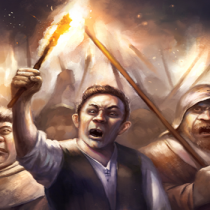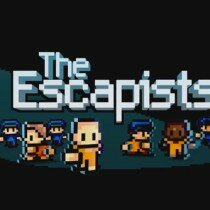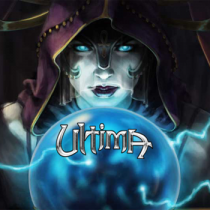It’s not often that I’ve had cause to review a Kickstarted game here on Zero1gaming, but with the crowd-funding movement becoming so prominent over recent years, there’s more than a few titles emerging from the site, so it’s about time I got on board.
Truth be told though, I’d have been all over today’s subject; Wasteland 2; like a tramp on chips whether it was kickstarted, big budget, indie-developed or even, gulp, taken over by EA!
You see, I’m a massive fan of the original Fallout games; a fact I might have mentioned in my retrospectives of first and second games in the series or in the video playthrough I did of them. I grew up with the third-person isometric post-apocalyptic RPG and they hold a special place in my heart to this day.
So what in the irradiated hell does that have to do with Wasteland 2? Quite a lot actually! First off, Wasteland 2 is that sort of title; thoroughly rooted in turn-based combat amid desolate retro-techno landscapes. Secondly, it’s directed by none other than Brian Fargo. That name sound familiar? Yeah, I thought so. It will be if you’ve ever seen the opening crawl at the beginning Fallout, on which he was Executive Producer.
…if you loved the old fallout games, you’ll love this too. Go and buy it now.
Let’s get the basics out the way early; Wasteland 2 is just like Fallout & Fallout 2. Hell, it’s basically the game that Fallout 3 would have been if it had been made back when the original Fallout 3 was conceived following Fallout 2 (the Van Buuren project that eventually bit the dust, and was eventually adapted, partially, into the modern day re-imagined Fallout 3 – I go into more detail in my Fallout 3 article, if you’re interested). The game plays just like the old Fallout games in a mechanical sense, so as lazy as it usually is to say ‘if you like X you’ll love Y’, in this case it holds true; if you loved the old fallout games, you’ll love this too. Go and buy it now. Stop reading right now and go buy it, you need no further information.
However, not everyone played the original Fallout games (for some daft reason involving them being released nearly 20 years ago or something) so I need to go into a bit more detail.
Wasteland 2 is, more or less, exactly what I come up with when I imagine the sort of game I’d love to make if I had the talent/coding skills/contacts/etc… It’s just an excellently put together RPG, plain and simple.

Looks pretty good eh?
The game mechanics are tried and tested; refined over decades of experimentation. The game has you select a squad of 4 Rangers to control; either picking from a set of pre-generated characters or creating your own. While this might sound fairly arbitrary, it’s quite unusual to find yourself with 4 protagonist characters, rather than the traditional solitary explorer. In addition, the pre-generated characters are very distinctive; possessing brief, but characterful, back-stories to help build that sense of immersion that these games live and die on. The ability to build your own characters must not be underestimated as well, giving experienced players the ability to really customise their experience.
The game is viewed from the aforementioned third-person isometric perspective, which strikes, in my opinion, the perfect balance of practical, tactical perspective with cinematic viewing for the main game mechanics. The player moves their squad through the game world by clicking areas of the map to either move to, talk to, investigate, shoot or whatever is relevant for the subject at hand and the camera position never fails to provide the best view needed. Indeed, most of the time the concept of camera angle doesn’t even cross your mind; surely the best indicator of all that it’s doing its job well.
Combat (which is, let’s face it, the key bit of these games) is solid, nuanced and challenging
Combat (which is, let’s face it, the key bit of these games) is solid, nuanced and challenging. Based on your characters’ statistics and those of your opponents, an order of turns is established and each character acts out their turn in that defined order; pretty much as you’d expect. Available actions are determined and regulated by the characters’ skills, equipped weapons and available action points. Action points are doled out to characters based on various core stats and are central to the combat system mechanic. Think of the movement mechanics from Xcom: Enemy Unknown, but a bit more complicated and you’re not too far off. Indeed, the inclusion of cover mechanics; with standing behind cover making you harder to hit unless flanked; makes the game feel more than a little like Firaxis’ tactical opus.
All characters in the game have the usual array of hit points, attack types, skills and statistics as you would expect (apart from Toaster Repair, a slightly tongue in cheek skill used to remove handy items from toasters around the game world).

Not unlike Xcom, in the basics at least
Outside of combat, the game is also very well made. The visuals are very good, even by today’s standards, let alone its more retro luminaries. I especially appreciated the wide range of visual settings available, meaning the game can look amazing on high-end systems, but conversely can run adequately on older systems, like my slightly ageing laptop.
The game setting manages to feel familiar to those who have played these sort of games before, while managing to display enough of its own twist on things to carve out its own distinct sense of character. The fusion of old-world, wild-west frontier themes with more technological and futuristic aspects, such as robots and laser weapons, manages to seamlessly meld to great effect.
What really stand out, however, are the production values and writing. The characters are just that; characters. They’re all fleshed out, to a greater or lesser extent, allowing you to really suspend your disbelief. This is only enhanced by the fact that the majority of main characters are fully voice-acted; and bloody well-acted at that! The game revels in showing you what’s going on, not just telling you in blocks of text.

Loveable bunch aren’t they?
The narrative is unlike any I’ve seen before in this type of game. Obviously it’s interesting and nuanced; I wouldn’t be raving about the game if it wasn’t. What’s particularly brilliant is how reactive the storyline is. Your decisions actually matter in the context of the narrative, with the story playing out very differently depending on what you decide. I don’t even mean just the big decisions, though of course those matter too. It’s the smaller stuff that effects what happens later on that impresses me. The writers manage to make most of what you do matter in some way, be it big or small. What is often so disappointing in RPGs these days is that when they say your decisions matter, it means you get to make a very obviously flagged decision one way or another; essentially do you take track A or tack B. Wasteland 2 managed to make me make decisions without realising I was making them until the consequences hit me.
Wasteland 2 managed to make me make decisions without realising I was making them until the consequences hit me
Take, for instance, a situation early in the game where I was given two destinations to visit to acquire materials that I needed. No emphasis was put on this; I wasn’t told I had to make the decision and given two options to choose and no others; the locations were placed on my map with little fanfare and I was left to my own devices. However, later on, after I made my way to one of the locations and was battling my way through the bandits attacking it, I was treated to the prospect of hearing an extended radio conversation between my base and the other location (the one I didn’t go to out of a sheer random selection made in passing) as the leader of the settlement pleaded for help against a threat and my boss repeatedly explained my squad were the only ones available and would be right with them, once we were done with that we were doing. This led to the situation at the other location rapidly deteriorating as residents were picked off one by one, all the while the proceedings being eerily discussed back and forth between the last remaining survivor and my commander; playing out an increasingly bleak and poignant tale while I felt increasingly guilty for not going to help out there first. This despite the fact that the place I was currently wading hip-deep-in-bandit-corpses through would have been equally buggered if I’d have gone elsewhere first.
Not many games manage to suspend your disbelief to that extent; to make you feel sufficiently invested and immersed to feel genuinely guilty and remorseful over the most off-hand decisions. That, my friends, is a little bit of magic that can only be achieved in great games and Wasteland 2 manages it better than any game I’ve played since the Mass Effect series.
Wasteland 2 is the game I’ve been waiting for over a decade. While it can be described as the spiritual successor to Fallout or as a throwback to the turn-based western RPG genre, what it is, first and foremost, is a bloody good game. Both engaging and challenging, the game will sweep you away and take you on a hell of a journey.
And you know what? You’ll love every damn minute of it.
© 2014 – 2015, zero1gaming.com. All rights reserved. On republishing this article your must provide a link to this original post
About Paul Izod
Paul Izod is a lifelong gamer. Since he was old enough to tap at his Dad's PC's keyboard he's been a gamer. Dedicated and often opinionated, you can be sure he'll always have something interesting to say about the subject at hand. Find him on Twitter at or or email him at
•




